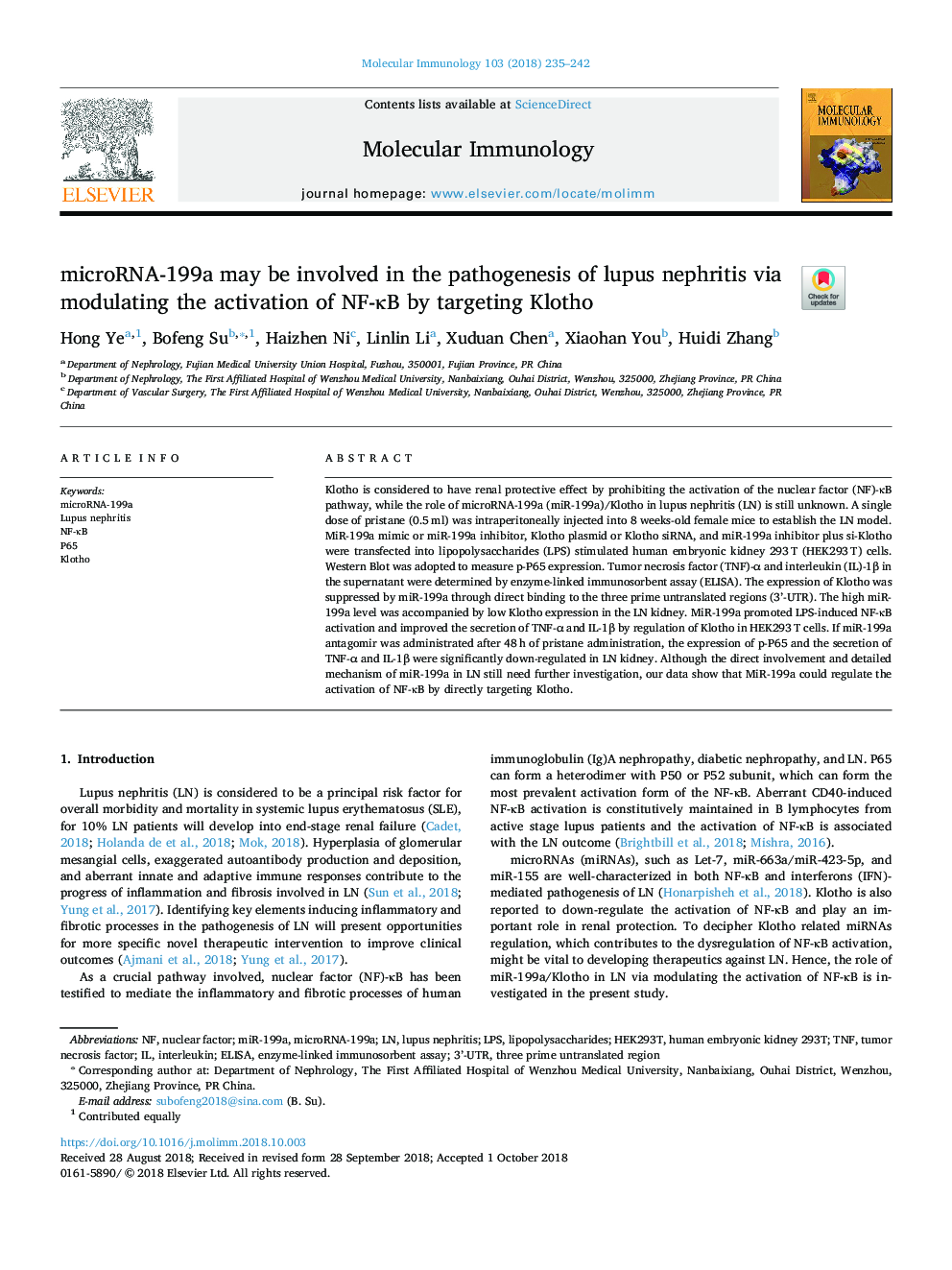| Article ID | Journal | Published Year | Pages | File Type |
|---|---|---|---|---|
| 11030718 | Molecular Immunology | 2018 | 8 Pages |
Abstract
Klotho is considered to have renal protective effect by prohibiting the activation of the nuclear factor (NF)-κB pathway, while the role of microRNA-199a (miR-199a)/Klotho in lupus nephritis (LN) is still unknown. A single dose of pristane (0.5âml) was intraperitoneally injected into 8 weeks-old female mice to establish the LN model. MiR-199a mimic or miR-199a inhibitor, Klotho plasmid or Klotho siRNA, and miR-199a inhibitor plus si-Klotho were transfected into lipopolysaccharides (LPS) stimulated human embryonic kidney 293âT (HEK293âT) cells. Western Blot was adopted to measure p-P65 expression. Tumor necrosis factor (TNF)-α and interleukin (IL)-1β in the supernatant were determined by enzyme-linked immunosorbent assay (ELISA). The expression of Klotho was suppressed by miR-199a through direct binding to the three prime untranslated regions (3'-UTR). The high miR-199a level was accompanied by low Klotho expression in the LN kidney. MiR-199a promoted LPS-induced NF-κB activation and improved the secretion of TNF-α and IL-1β by regulation of Klotho in HEK293âT cells. If miR-199a antagomir was administrated after 48âh of pristane administration, the expression of p-P65 and the secretion of TNF-α and IL-1β were significantly down-regulated in LN kidney. Although the direct involvement and detailed mechanism of miR-199a in LN still need further investigation, our data show that MiR-199a could regulate the activation of NF-κB by directly targeting Klotho.
Keywords
Related Topics
Life Sciences
Biochemistry, Genetics and Molecular Biology
Molecular Biology
Authors
Hong Ye, Bofeng Su, Haizhen Ni, Linlin Li, Xuduan Chen, Xiaohan You, Huidi Zhang,
